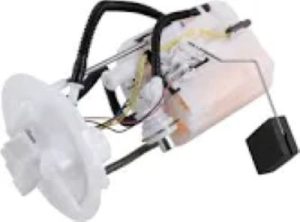It's true that running low on fuel can, over a period, burn out the pump due to overheating and loss of lubrication. In an electric fuel pump, especially one inside the fuel tank, the surrounding gasoline cools and lubricates the moving parts. If the fuel level drops below a quarter tank, air begins to be sucked in with fuel by the pump, thus causing its temperature to rise. A fuel pump basically overheats when it runs on low fuel, which studies have proved can reduce its life-span by as much as 25%.
Since it works, the pump tends to be more frictional when not enough fuel is passing through it to lubricate and cushion the moving parts, which include the impeller and motor bearings. This hastens the corrosion of these parts and might make the pump fail. In normal cases, a failing fuel pump may exhibit symptoms of whining noises, reduced fuel pressure, and engine stalling. These can cost as much as $1,200 or more to repair when these issues arise, depending on the model of the vehicle and the labor costs involved.

Running low on fuel also increases the probability that contaminants in the bottom of the tank are sucked into the pump. When levels are low, sediment and debris can go to the bottom of the tank and suck up through the fuel filter into the pump, thereby creating more problems. Contaminated fuel may also create inefficiency in the pump itself and add an additional 10% loss in performance due to stress on the fuel delivery system.
Profессiоналы suggest keeping the fuel tank at least one-quarter full to minimize these risks. Regular maintenance and monitoring fuel levels can help prevent damage to the Fuel Pump and ensure that the engine operates without problems. In conclusion, low fuel can significantly affect the functionality of fuel pumps, overheating and causing wear or the complete failure of the pump if not managed properly.